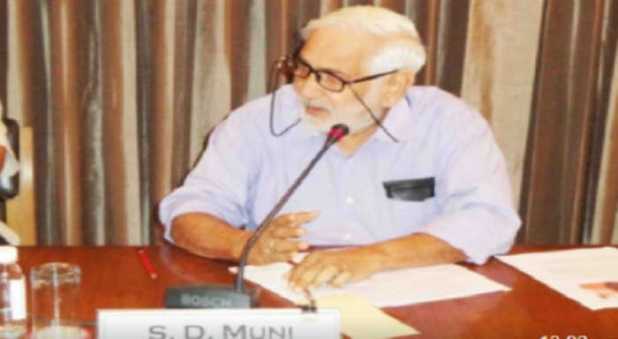
By Rohit Mitra Kathmandu, March 25 : After visiting Afghanistan, Pakistan and India, Chinese Foreign Minister Wang Yi reached Nepal on Friday for a three-day visit. Wang Yi is leading a 25-member delegation and is in Nepal at the invitation by his Nepali counterpart Narayan Khadka. Prof SD M , Proffessor Emiritus, Jawaharlal Nehru versity (JNU) and former Indian Ambassador to Laos PDR is a keen Nepal observer, he analises the main reasons for the Yi’s Nepal visit. Speaking to , Prof M said that giving a push to infrastructural projects, allaying fears regarding ‘Chinese debt trap’ and ‘undue Chinese influence’ may be the major reasons for Yi’s visit. “China is insisting on increasing it’s influence among India’s neighbours in South Asia but there is a lot of talk regarding China’s interference in internal politics of countries, and it’s alleged debt trap policy. Wang’s visit is aimed to allay these fears and to move forward bilateral relations,” he said. Prof M pointed out some of the important infrastructure projects China is pushing for in Nepal and felt that China’s influence in Nepal may be over rated. “Chinese influence in Nepal may be over hyped, if we take a closer look the Belt and Road(BRI) has not moved forward, the agreement has been signed but on the ground things have not moved forward, and Yi’s visit may try to push for it. Another important project Kathmandu-Lhasa project the Chinese are pushing for but even a preliminary report of the same has not been prepared till now.” When asked weather China’s influence in Nepal has waned under PM Sher Bahadur Deuba, he says: “In Nepal, there has been a push to check Chinese influenece, not only during PM Deuba, this in my view it had started during the last days of K P Oli’s Prime Ministership. Deuba too is trying to check China’s undue influence.” Regarding the boundary issue between Nepal and China, he said that there have been reports in Nepalese press that boundary villages have been built by the Chinese, however, no big politician has acknowledged this overtly. RKM GK

